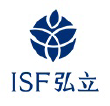Learning and Research: Pairing the Past with the Future
May 23, 2025
Learning is often associated with imparting the skills, knowledge and attitudes that will equip younger members of a community with all that is needed to meet their personal, social, and vocational needs in the future. Much of this process has as its focus the intergenerational transfer of learning. The old teach the young.
This transfer of the ‘known’ to young learners is an intentional and necessary parental obligation that is aimed at preparing the next generation for the burden of global and local stewardship when they ‘inherit’ the earth from their parents and grandparents. Graduates of our schools will need a wide range of skills and broad knowledge mastery to cope with the responsibilities and challenges that lie ahead. As such, school learning is deeply rooted in the histories, traditions, cultures, adventures, and discoveries of the past. It brings this rich human legacy into the present day. Our students will, of course, always construct their own ‘versions’ of this skill and knowledge transfer, adapting and adjusting to meet current circumstances and anticipated future conditions. The IB Diploma external examinations that await our students each year at the end of Grade 12 provide a formal forum and process to demonstrate this mastery publicly.
On the other side of this coin is something that is known generically as ‘research’. While research, like learning, does rely heavily on prior learning in terms of knowledge and mastery of existing skills, it has a fundamentally different focus: the creation of new knowledge and skills. As such, research often seeks or produces a dissociation with prior learning and may result in a complete disconnect or discontinuity with all that we know. Research in its purest form departs from the known to create paradigm shifts in which novel knowledge and unmastered skills are an expected by-product. We do not conduct research to revisit or reaffirm the past, we are seeking to change the future. Research is aimed at answering open, unanswered questions: it may offer a reinterpretation of past events or a refutation of accepted knowledge, particularly for scientific theories. Research is aimed at ‘making meaning’ in a world that is only partially understood. It may fill in blanks, rewrite history, or write completely new chapters on blank pages of human knowledge. Through research, the world changes, often dramatically, and we change with it.
So, what can we say of the juxtapositioning of learning and research in one institution? At ISF, we recognize the need to understand and respect the past, master the time-honored knowledge created in answer to key questions in history; at the same time, we must prepare our students to ask completely new questions and pursue queries that have little or no connection with current knowledge. Encouraging ISF learners to look beyond the known of the past and present, into the unknown of the future is an essentially cultural and philosophical shift. This is not generated spontaneously; it is modeled and practiced by leaders and faculty at multiple levels and in different ways.
This week we hosted Research Week. It is a celebration of the spirit of creativity and inquiry that informs and inspires the many research-focused experiments and exploratory projects underway at ISF. Research Week offers our knowledge-creators an opportunity to share their findings and passion for research with all members of the ISF community. It is an event where each of us can take pride in these expressions of courage, creativity, and endeavor. It is also a practical expression of encouragement to all, including our youngest learners, that exploring our world, from the microscopic to the astronomical, is a rewarding undertaking where the precious prize of new knowledge beckons to each one of us. To each reader I extend a warm invitation to join us as an explorer of the new worlds of the future at ISF!
Dr. Malcolm Pritchard
Head of School
